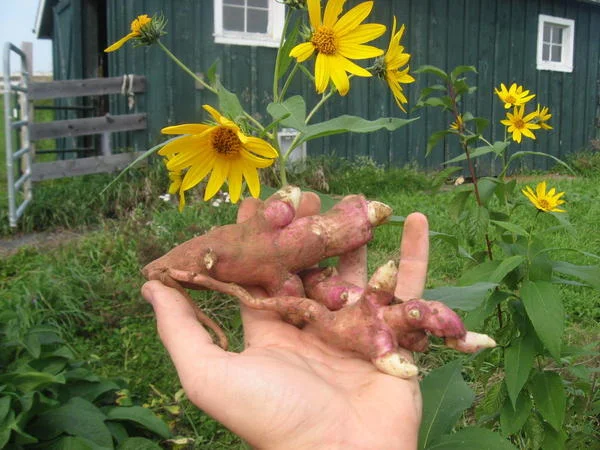
Pre-order Plants for Spring 2025 Shipping
Welcome to the Food Forest Farm plant shop! Here you’ll find many of the plants we’ve been growing in the nursery since 2010. These plants will come to you healthy and ready for their new home.
All of our plants are multi-functional, that is, some perennial vegetables can be eaten by a human, or livestock (leaf hay), or be grown as mulch for biomass, and more! You can look at “All” of the plants, or filter with the navigation bar.
Perennial Vegetables: edible roots, leaves, shoots, buds, seeds that come from perennial herbs, shrubs, and trees
Fruit: edible sweet goodness
Leaf Hay: plants to grow and feed to livestock like cattle, sheep, goats and rabbits
Biomass: herbs, grasses, shrubs and trees that grow fast and can be cut and used as mulch, grow soil, fuel stoves and compost piles
Sunchoke large handful
Sunchoke large handful
Very large native herb, running to form large colonies. Produces sweet, nutty-flavored tubers, highly productive. Starch is not digestible by most, good for low sugar diets. Flowers attract beneficial insects. Cultivated by Eastern Native Americans for centuries. Grow enough of this plant and it can be used as biomass or livestock fodder. Your order will include five to seven tubers (sizes vary).
Sunchoke, Jerusalem artichoke, sunroot, earth apple
Scientific Name: Helianthus tuberosus
Plant Hardiness Zone: 2+
Fruit Size: Medium root
Light: sun, partial, shade
Soil Composition: Suitable for all soil types
Taste: Nutty potato
Uses: Food, biomass, livestock fodder, native insect habitat
